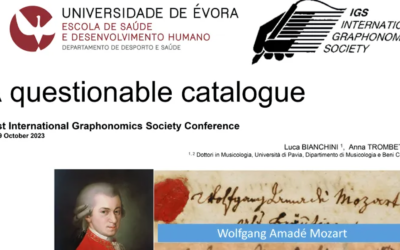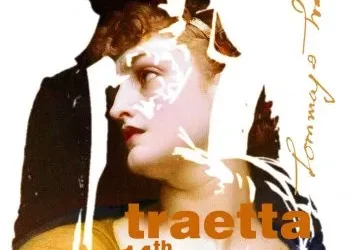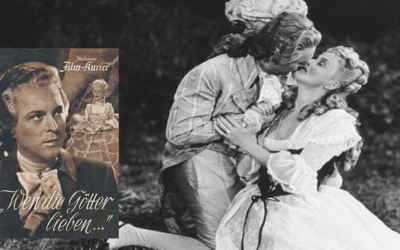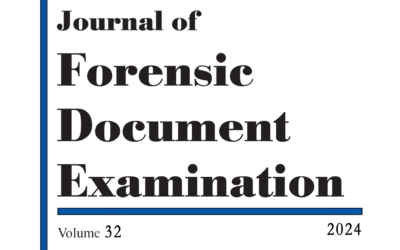Unraveling Myths and Reality
The Legend of Mozart's Miserere
The enduring popularity of the narrative surrounding Mozart’s Miserere highlights the allure of the prodigy myth, but as we peel back the layers, we uncover a more nuanced picture of his life and the musical landscape of the time. The reality often contrasts sharply with the romanticized tales that have shaped our understanding of his genius.
Mozart: The Fall of the Gods
This book offers a fresh and critical look at the life of Wolfgang Amadeus Mozart, challenging the myths that have surrounded him for centuries. We strip away the romanticised image of the “natural genius” and delve into the contradictions within Mozart’s extensive biographies. Backed by nearly 2,000 meticulously sourced citations, this work invites readers to explore a deeper, more complex understanding of Mozart. Perfect for those who wish to question the traditional narrative, this biography is a must-read for serious music lovers and historians.
"The story of Wolfgang’s supposed transcription of the Miserere is a fabrication by Leopold, intended to enhance their status in Salzburg."
Mozart: The Fall of the Gods
The story of Wolfgang Amadeus Mozart’s encounter with Gregorio Allegri’s famous Miserere is one of the most cherished legends in musical history. It paints a picture of a young prodigy who, upon hearing the piece during Holy Week in Rome in 1770, memorized it and secretly transcribed it, defying the Church’s prohibition against copying sacred music. This tale has captivated generations, but how much of it is rooted in truth?
According to the narrative, Mozart and his father, Leopold, arrived in Rome during Holy Week, determined to experience the revered Miserere sung in the Sistine Chapel. The legend suggests that Mozart skillfully concealed his manuscript in a hat to make corrections after the performance. This act of musical daring supposedly garnered admiration from the assembled audience, including the famed castrato, Cristofori, who sang the piece.
However, this romanticized account raises several questions. The journey from Florence to Rome was arduous, taking five days, marked by inclement weather. Upon their arrival, Leopold wrote letters detailing their experience, yet he didn’t mention any noteworthy aspects of the Miserere performance on the day they attended the service. Instead, he described the difficulties of their travels and encounters with various dignitaries.
In our book, Mozart: The Fall of the Gods – Part I, we point out inconsistencies in this tale. Notably, the Mozart family arrived late and had not yet registered or presented their letters of recommendation, making it impossible for them to enter without proper accreditation. The Miserere of Allegri was performed on the Wednesday of Holy Week, but it was also customary to perform a different version by Tommaso Bai the following day. Leopold’s accounts do not clarify whether they heard Allegri’s work or Bai’s, leading to speculation that the details may have been conflated over time.
Additionally, the supposed prohibition against copying the Miserere is now widely regarded as a myth. Copies of Allegri’s work circulated freely in England and elsewhere, and even a musician in the Papal Chapel had obtained a copy for the English traveler Charles Burney during the same year. This suggests that the Miserere was not the closely guarded secret it was purported to be.
Despite the legend, it appears that Mozart may not have executed the extraordinary feat of transcribing the piece as widely believed. The practicalities of the situation—such as the lack of a keyboard in their cramped lodging—render it unlikely that Wolfgang could have composed a faithful version of the intricate Miserere from memory. In fact, as he would later demonstrate in his life, Mozart was unable to compose without access to a clavier.
The enduring popularity of this narrative highlights the allure of the prodigy myth surrounding Mozart. However, it also serves as a reminder of the complexities of historical interpretation. The reality of Mozart’s experiences is often overshadowed by the enchanting tales that surround them, complicating our understanding of his musical development.
As we peel back the layers of this legend, we uncover a more nuanced picture of Mozart’s life and the musical landscape of the time. The Miserere incident reflects not only the boy’s burgeoning talents but also the cultural and historical contexts in which he operated—contexts that were rife with exaggeration and myth-making.
In the end, while the story of Mozart and the Miserere may be steeped in legend, it is essential to approach such tales with a critical eye, recognizing the difference between the romanticized narratives of musical genius and the more complex realities of artistic development.
For a deeper understanding of the details and inconsistencies surrounding this legend, we invite you to read our book, Mozart: The Fall of the Gods – Part I, which elaborates on all the particulars and demonstrates that Mozart NEVER transcribed the Miserere. This is a tale concocted by Leopold.
You May Also Like
The Enigma of Mozart’s Symphony K.73
The Symphony in C Major K.73 has long puzzled Mozart scholars. Touted as a youthful work of prodigious talent, its origins are murky at best. The title “Symphony,” inscribed on the first page of the autograph, is devoid of the composer’s name, casting immediate doubt on its attribution to Wolfgang Amadeus Mozart. Was this truly his work, or is the Symphony yet another victim of overzealous attribution?
Mozart’s Thematic Catalogue Exposed as a Forgery
A groundbreaking forensic analysis reveals that Mozart’s thematic catalogue, long thought to be his own work, is a posthumous forgery. This discovery, detailed in Mozart: The Construction of a Genius, turns centuries of Mozart scholarship on its head, demanding a re-examination of his legacy.
Bologna Connections
Quirino Gasparini’s rediscovered Mitridate aria takes centre stage in Bern and Basel, shedding light on Mozart’s reliance on this forgotten composer.
International Traetta Award
We are thrilled to announce that the 14th International Traetta Award has been bestowed upon Anna Trombetta and Luca Bianchini. This prestigious recognition honours their outstanding dedication to musicological research on primary sources of the European musical repertoire, offering significant contributions to reshaping the historiography of 18th-century music.
A Legacy Rewritten by the Shadows of History
Mozart’s image, often regarded as a universal symbol of musical genius, was heavily manipulated by the Nazi regime, a fact largely ignored in post-war efforts to “denazify” German culture. From propaganda-driven films to anti-Semitic narratives, Mozart’s legacy is far more complex and troubling than we are often led to believe.
Unveiling the Truth Behind Mozart’s Thematic Catalogue
Anna Trombetta, Professor Martin W. B. Jarvis from Charles Darwin University, and Luca Bianchini, have published a peer-reviewed article titled Unveiling a New Sophisticated Ink Analysis Technique, and Digital Image Processing: A Forensic Examination of Mozart’s Thematic Catalogue. This research, which underwent an extensive double-blind peer review, has appeared in a journal that serves as a global reference point for forensic document examiners and court specialists.







